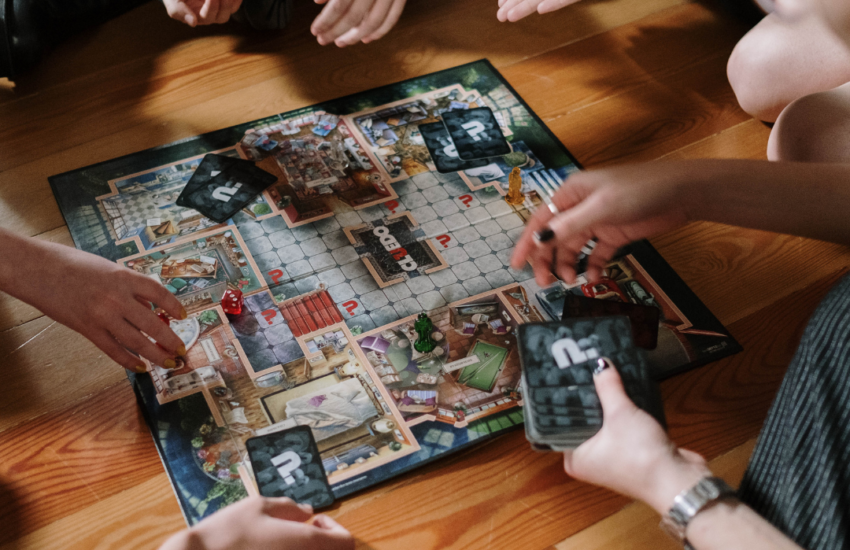Engaging Dinner Party Games
Throwing a dinner party is the perfect way to bring friends or family together for an evening filled with delicious food, laughter, and great conversation. However, to elevate the occasion, introducing dinner party games can infuse your evening with energy and excitement.
When selecting games for your dinner party, consider the interests and personalities of your guests, as well as the setting of the event. You might find that sophisticated and light-hearted quizzes perfectly suit a formal dinner, while interactive and imaginative games could be the life of a more casual get-together. Regardless of the type of dinner party you’re hosting, remember the most successful dinner party games are the ones that keep your guests entertained and engaged throughout the evening.
Essentials of a Dinner Party
To host a successful dinner party, careful planning and an apt selection of food and beverages are crucial.
Planning and Hosting
Venue Selection: Choose a space that comfortably accommodates your guest list and sets the right atmosphere for the dinner party.
Guest List: Create your invitees considering the dynamics of the group. Ensure to ask for any allergies or dietary requirements in advance.
Theme: Set the mood with a coherent theme that ties together decorations, music, and activities.
Seating Arrangement: Thoughtful seating can spark stimulating conversation and enhance the dining experience.
Food and Beverages
Menu Curation:
- Starter: Aim for a light appetiser that teases the palate.
- Main Course: Include a balanced choice of meat, and vegetarian options.
- Dessert: Finish with a dessert that complements your menu.
Wine Pairing: Offer a selection of wines that harmonise with each course. Remember that reds generally pair well with red meats, while whites favour poultry and seafood.
Non-Alcoholic Alternatives: Provide sophisticated non-alcoholic options for non-drinkers.
Attention to Detail: Ensure all dishes are prepared to cater to the allergies and dietary requirements of your guests, without compromising on taste or presentation. Use fresh, quality ingredients for the best results.
Types of Dinner Party Games
When planning your dinner party, selecting the right mix of games can be the key to a memorable evening. Your choices should cater to the varied interests of your guests, and the types of games can range from simple conversation starters to more structured activities.
Ice-Breaker Games
Ice-breaker games are perfect for warming up the atmosphere and getting your guests acquainted.
- Two Truths and a Lie is a classic example; you ask guests to share three statements about themselves, two of which are true and one a lie, while others guess the false one.
- Who Am I? is a game where guests must figure out the identity on a card that is secretly assigned to them. These activities encourage interaction and laughter, setting a casual tone for the evening.
Board and Classic Card Games
Board and card games serve as excellent entertainment, offering a structured way for guests to engage.
- Pictionary and Charades involve guests in creative guesswork and can be hilarious as people try to act out or draw clues without speaking.
- Apples to Apples adds a humorous angle to judging, where players match descriptions to things in the most amusing or appropriate way.
- Traditional card games can range from the competitive Bridge to the laid-back Go Fish, depending on your dinner party’s style.
These games have clear rules and can fill the evening with friendly competition.
Creative and Imaginative Games
For those seeking a more immersive experience, creative and imaginative games bring a story or theme to the forefront.
- Murder Mystery Games turn your dinner party into an interactive whodunnit, engaging guests in role-play and detective work.
- Scattergories test both your wordplay skills and imagination, as you scramble to match categories with words starting with a particular letter.
- Cards Against Humanity, known for its risqué humour, might be a bold choice for a close-knit group looking for outrageous laughs.
These games can be elaborate and involve everyone in an ongoing narrative or challenge, often becoming the highlight of the evening.
Organising the Games
When you’re hosting a dinner party, the right games can transform the evening by sparking playful competition and acting as conversation starters.
Choosing the Right Games
If you’re looking for a relaxed atmosphere, consider options such as Charades or Pictionary, which encourage creativity and can be played with a drink in hand. For a more competitive edge, board games can provide a structured play experience with clear winners, which can be a hit for those who relish a challenge.
- Casual Play: Pictionary, Charades, Joking Hazard
- Structured Competition: Trivia, Board Games
Explaining Rules and Guidelines
Clarity is key in explaining rules and guidelines. Begin by presenting the objectives of the game, followed by a concise rundown of the rules. Use visual aids if necessary, and consider a quick demonstration to clarify complex points.
- Be Concise: Avoid lengthy explanations; keep it simple.
- Be Patient: Allow for questions and offer clarifications without judgment.
By carefully choosing the right games and explaining rules and guidelines effectively, you’ll set the stage for an unforgettable evening filled with laughter and engaging conversation.
Conversation-Driven Games
In your next dinner party, utilise conversation-driven games to break the ice and kindle engaging discussions amongst guests. These games are crafted to prompt intriguing dialogue and personal sharing, making them perfect for encouraging connection and entertainment.
Dialogue and Storytelling Activities
For an inventive twist, try Story Starters. Someone begins a story with a single sentence, and then each person around the table adds a line. This activity not only spurs your imagination but also leads to unexpected and often humorous tales.
Get to Know You Games
Explore The Best Dinner Party Questions—a trove of thought-provoking queries designed to know your guests better. Ask about someone’s worst job in high school or their most cherished holiday memory. This elevates the conversation from mundane to memorable. For a set of great questions, check out this collection.
Additionally, Train of Thought is a superb way to maintain conversational momentum. Each player takes turns answering questions from a deck, which can range from simple to profound, making sure everyone’s voice is heard and valued. Learn more about how this game is played here.


